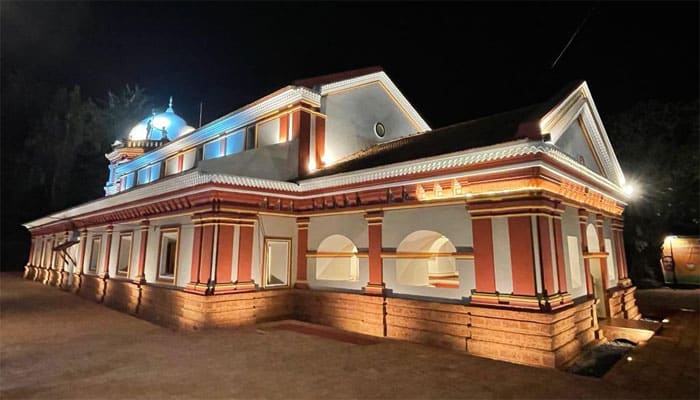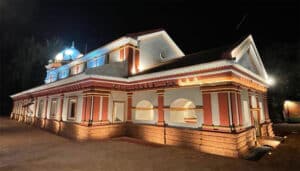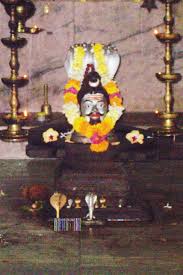Saptakoteshwar Temple Goa:
One of the six outstanding Shiva temple locations in the Konkan region is the Saptakoteshwar temple in Narve, Goa, India.
Also Read:
Saptakoteshwar Temple History:
One of the main deities worshipped by the Kings of the Kadamba dynasty in the twelfth century was Saptakoteshwar, a manifestation of Shiva. The King constructed the temple in honour of his wife Kamaldevi, a devoted follower of the god.The title (Birudu) Shree Saptakotisha Ladbha Varaveera was proudly adopted by the Kadamba monarchs.
The inscriptions on the gold coins bearing the names of the kings Jayakeshi I, Jayakeshi II, Jayakeshi III, Shivachitta Paramadideva, Soideva, etc. read: Saptakotishvaralabdha – Varaprasada, which translates to “with the grace of Lord Saptakotishwara,” the family deity of the Kadambas. It was common to call these coins Saptakotisha-Gadyanakas.
Goa was ruled by the Bahmani Sultan Allauddin Hasan Gangu for around 14 years beginning in 1352, when he overthrew the Kadamba kingdom. Several temples were demolished during this time, and the soldiers dug up the linga at the Saptakoteshwar temple, which is a representation of Lord Shiva.
When the Bahmani Sultan’s armies invaded Goa in 1367, the army of Vijayanagara King Harihararaya fought them and restored most of the temples, including Saptakoteshwar, to its previous splendour. The records state that Madhava Mantri rebuilt the temple at the end of the 14th century.
The linga was used as a well shaft until some Hindus managed to save it after the Portuguese destroyed the temple in 1560 (and built a chapel honouring Nossa Senhora De Candelaria in its place[5]). The statue was thereafter smuggled across the river to Bicholim, where the Maratha Chatrapati Shivaji Maharaj put it in a brand-new temple and renovated it in 1668.On the advice and blessing of Chatrapati Shivaji Maharaj, the president of the sansthan, Shri Shivaram Desai, built the new location.
Architecture of Saptakoteshwar Temple Goa:
The temple is located in a region of significance for archaeology and features a European-style Mandapa, or assembly hall, a tall lamp tower called Deepastamba, and a shallow Hindu kalash dome built on an octagonal drum with sloping tiled roofs. Several Brahminical laterite and stone caves can be found in the area around the temple. There was a Jain Math nearby, the remnants of which are still discernible.
A Kalbhairav shrine can be found in front of the temple on the right side of the Deepastamba, and outside it may be seen Dattatraya’s padukas engraved into the stone. Two enormous, deeply buried laterite pillar-like formations can be observed just ahead of the Deepastamba. Perhaps they are stone henges. There are sculpted stone walls with niches behind the temple.It might have been an Agrashala from long ago. Similar to this, a man-made tunnel-like structure that is currently silted exists close to the temple. On the day of Lord Shiva’s birthday, devotees purify themselves in a sacred tank known as Panchaganga Tirtha, which is close to the temple site.
Saptakoteshwar Temple Timings:
The open and closing timings of Saptakoteshwar Temple is 6.00 am – 7.00 pm
How to reach Saptakoteshwar Temple?
About 35 km from Panaji, in the village of Narve, is where you’ll find the Saptakoteshwar Temple. A ferry boat can take you there from the island of Divar.
Saptakoteshwar Temple Goa Location:
Naroa, Sao Matias VP, Goa 403403
Saptakoteshwar Temple Photos:



